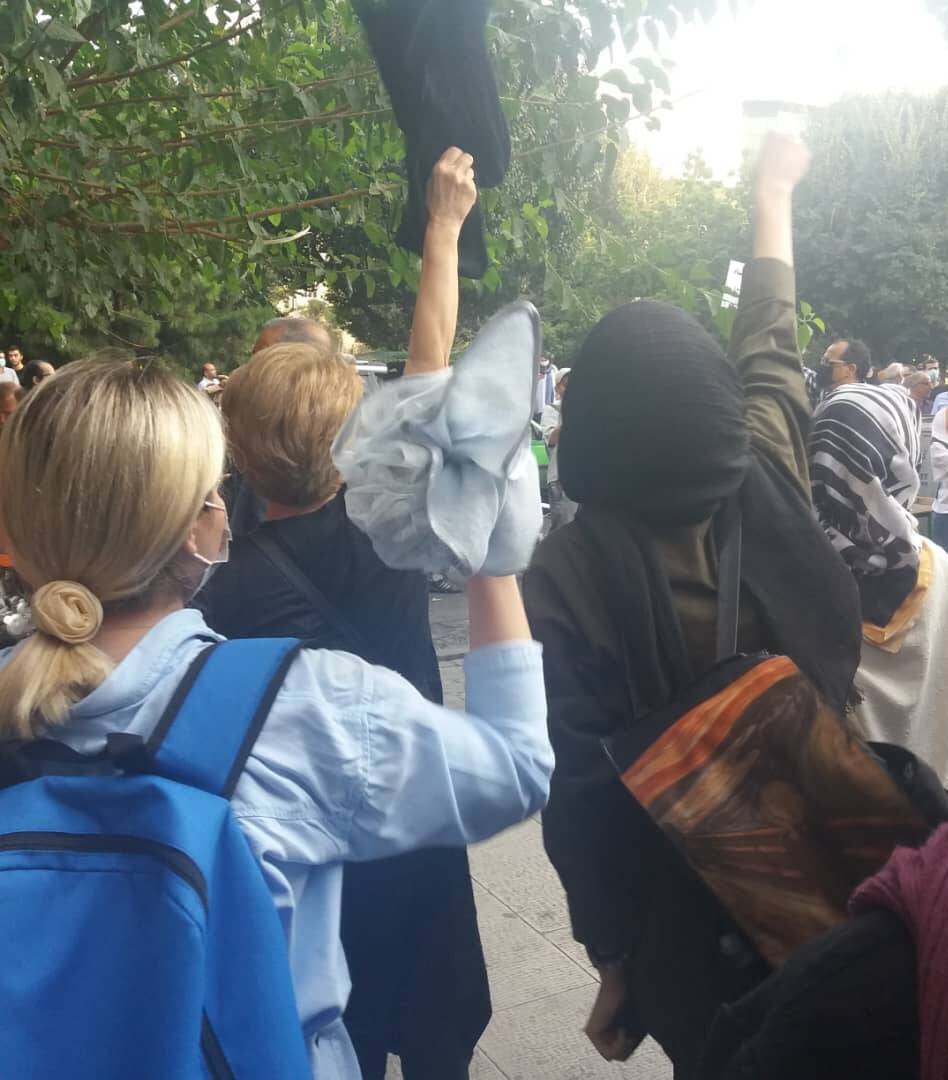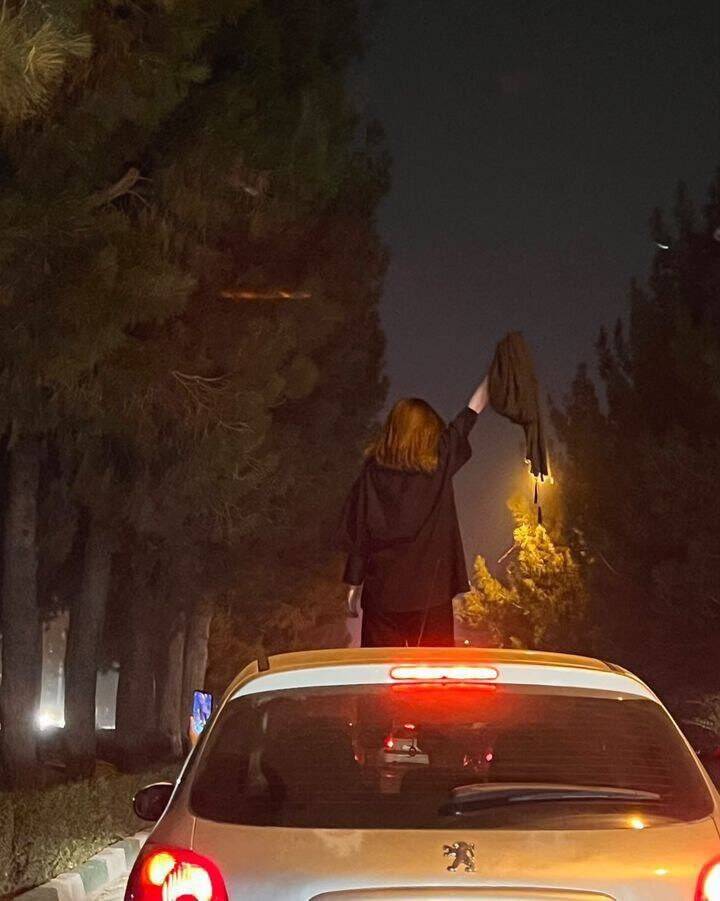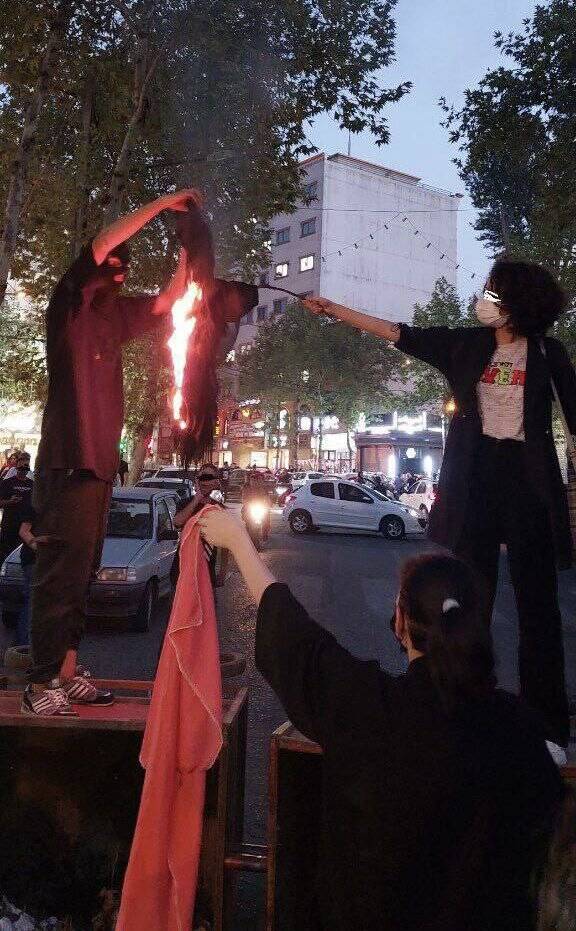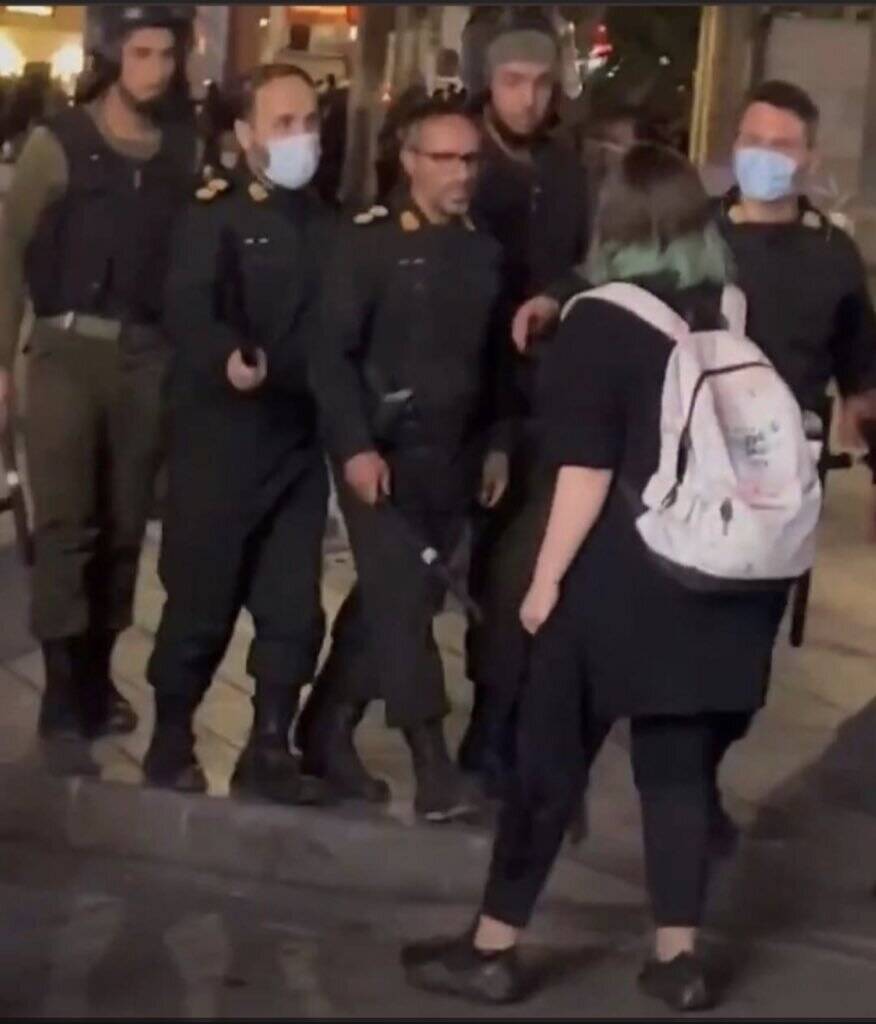“We could be killed, as Mahsa was.” Iranian guest writer Fatemeh Roshan shares personal accounts by Iranian women who shook the world after Mahsa Amini was murdered for not wearing a headscarf properly.
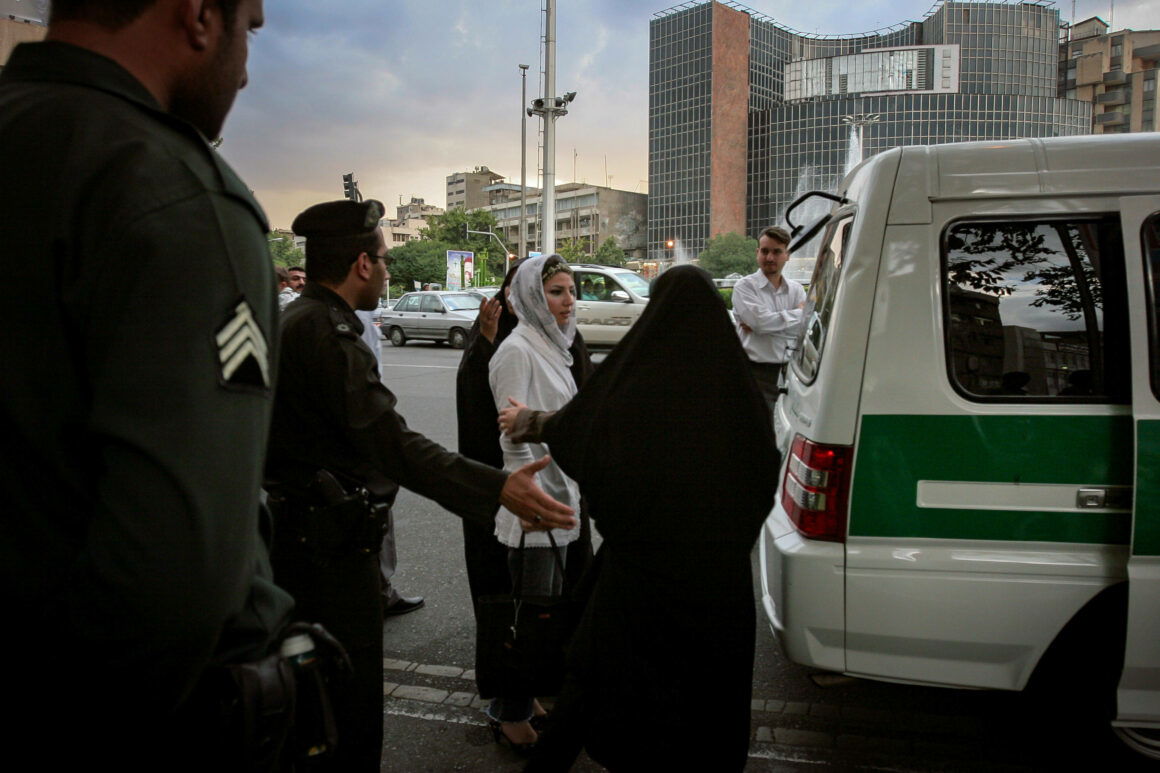
Face to Face with the Morality Police
Personal Accounts from Iranian Women Who Sparked Worldwide Protests Upon the Death of Mahsa Amini
Despite the morality police and the strict Islamic laws which led to the killing of Mahsa Amini on September 16, women in Iran are not defined by this. They are artists, scientists, professors, lawyers, journalists, students, daughters, mothers and now, most importantly, they are activists, fighting for their lives.
As seen in the protests, they are supported by their families and male counterparts — with the death of Masha Amini and a history of oppressive rules, all ages and backgrounds are coming together and showing a side to Iran that many may not have seen before: defiant, resilient, brave and heroic.
For our Local Heroes series, guest writer Fatemeh Roshan spoke to five Iranian women who have come face to face with the morality police, their stories carry the legacy of Masha Amini.
“Women have undergone significant transformation between the time I was detained and the present. They are not adopting the hijab as the government wants. My friends and I make every effort to avoid the hijab. Even my mother doesn’t cover up. This is how we call for freedom.”
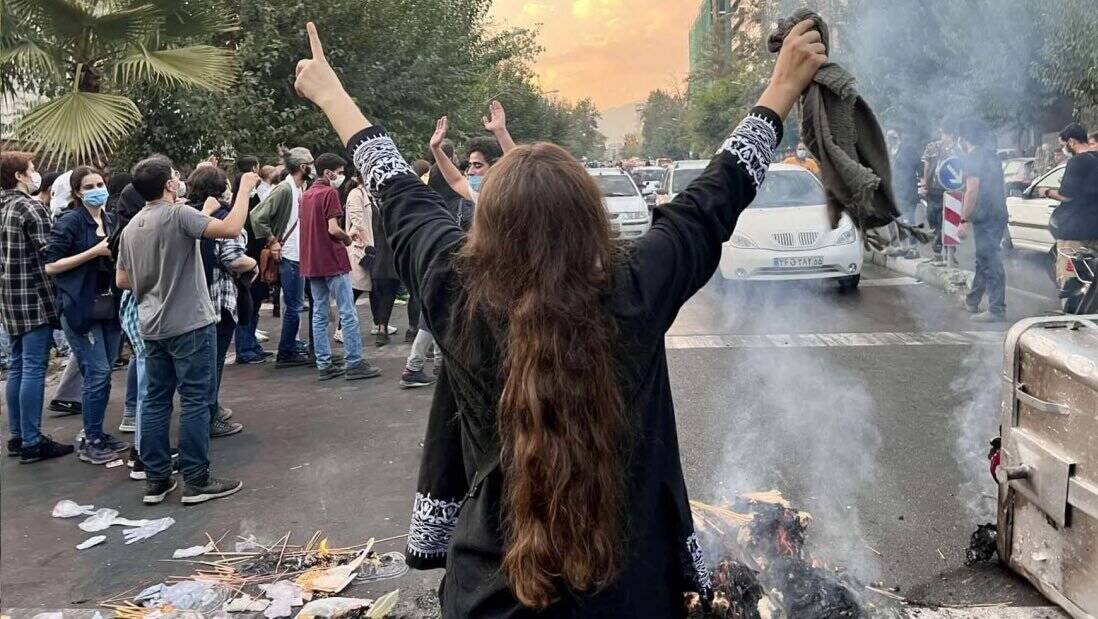
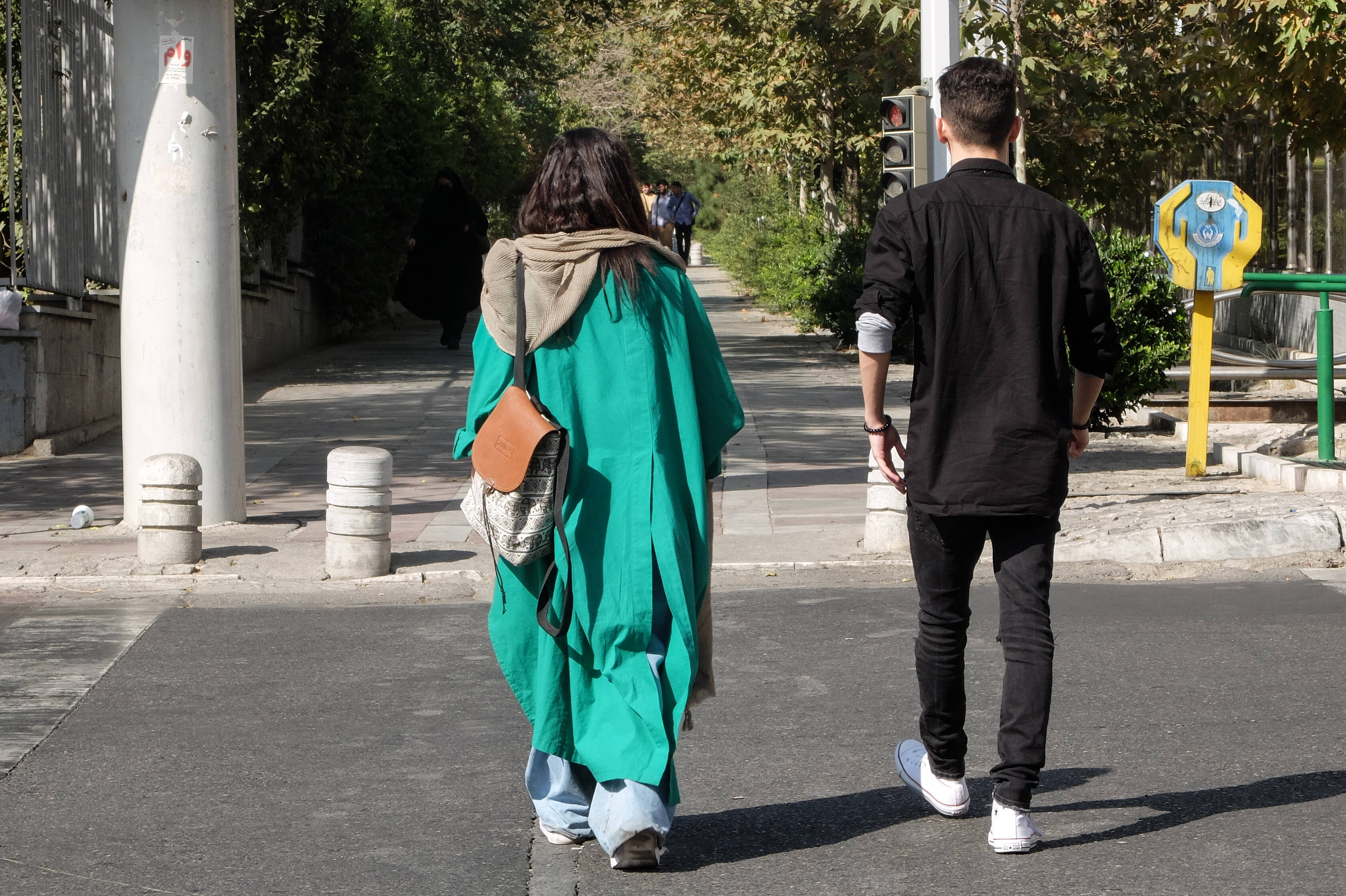
Protests for Women’s Rights in Iran
Words and interviews by Fatemeh Roshan.
We could be killed, as Mahsa was; Farnaz, Soraia, Simin, Rana, Maryam, and myself. Every single one of us Iranian women who lived in Iran after the Islamic Revolution could have been Mahsa. It sounds harsh, but this is our reality. We survived to fight and share our stories.
The Iranian morality police in Tehran killed Mahsa Amini after she was arrested because her hair was not properly covered. Iranians inside and outside the country have since taken to the streets to protest for women’s rights in Iran.
Since the Islamic revolution in 1979, women in Iran have been forced to wear the hijab [headscarf] and a long dress called Manto. Women initially protested the new law, but were unsuccessful since the Islamic republic cracked down with harsh punishments, arrests, abuse, and violence. Since then, they have not been permitted to attend school, work, have ID cards, or participate in official events if they refuse to wear them, regardless of the punishments.
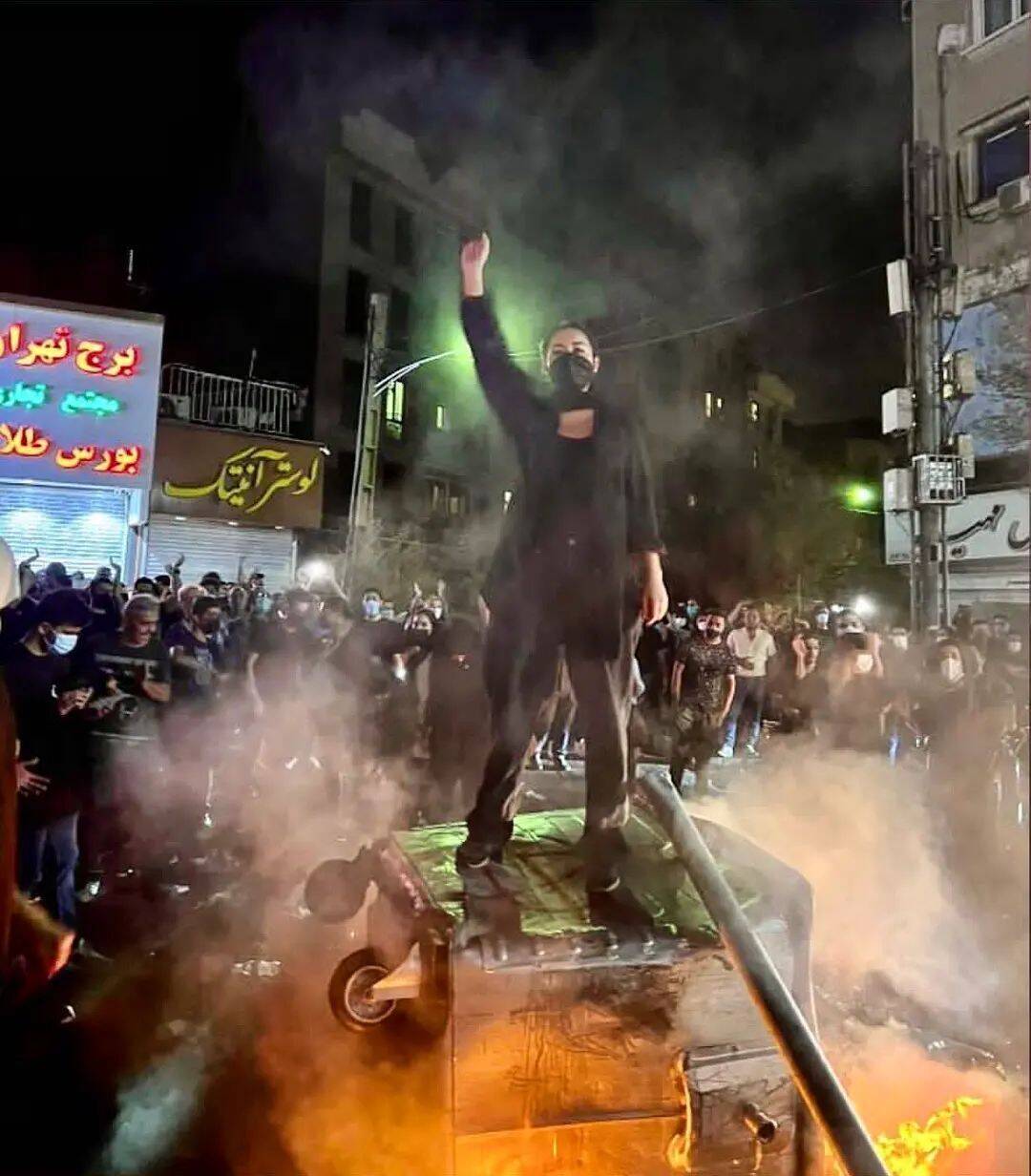
Farnaz, 35 Years Old: They Said “You Catch the Eyes”
Talking about “Morality Police” is always strange and bizarre. Something undesirable, senseless, and dark. I have encountered them lots of times, and after dealing with my anxiety for many years, I have learned how to manage my way to avoid getting in their way.
I’ll never forget an experience I had while I was a student. Mahsa and I have a similar story. I constantly think about the fact that it could have been me. I was a very young student from another city in Tehran. I was on my way to the university; they arrested me in Valiasr Sq. My dress, or “Manto”, was long and covered enough, so I didn’t wear any out of the ordinary clothing by their standards. But they did not let me go, when I asked why they were arresting me, the police woman replied: “You draw attention, you catch the eyes.” I even cried and said that I was not from Tehran and had no one to come after me, but it didn’t work.
They led us to the location of Mahsa’s murder, the Vozara center. I’ll never forget how they bullied us while also making fun of us. I remember while we were in shock and sobbing, the police women were counting and joking about how many women they hunted down that day. They gave me a card with my name on it, for taking pictures, like criminals. After many hours of waiting, I called my flat mate to come after me with new clothes.
I moved to Europe and have been away from my home country for a month now. They killed Mahsa shortly after I left Iran. My feelings are so conflicted and convoluted. There are times when I’m content and enjoying life in freedom in a place where nobody instructs me on what to do or wear. I’ve never felt wind in my hair before, but I do now. On the other hand, I feel guilty and ashamed about leaving my sisters in that country because they are unable to experience this and I am unable to truly enjoy my freedom.
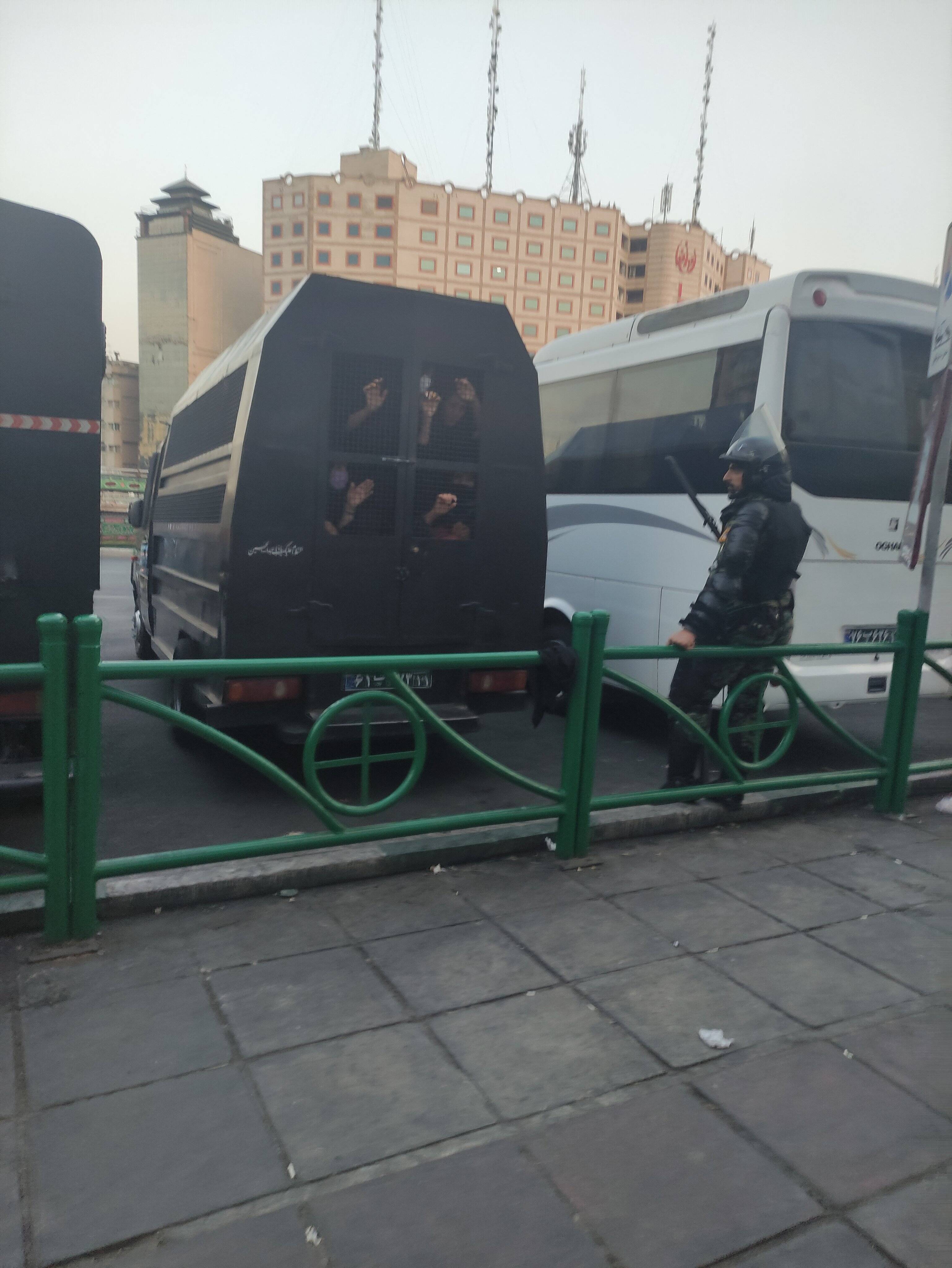
Soraia, 28: They Made Us Feel Less Than Human
I was still a high school student when I was first arrested by the morality police. It was Mother’s Day. My schoolmate and I wanted to get our mothers gifts. We faced them on the way home. They detained us because they thought my Manto didn’t reach my knees.
Because I was so young, I was shocked and terrified. I initially tried to reject it, but they held the power so I eventually did as they asked but I feared there would be more violence. They drove us to Gisha Street. We were in a room filled with females; terrified and inconsolable. I can still hear the screams of two females in the isolated room. We asked what was wrong. “Try not to be like her,” the woman officer advised, “she didn’t listen to us”.
They kept us for many hours. I had to call my mom; she was more terrified than I was. They gave us some cards like prisoners with our names. We held them up in front of our faces and pictures were taken – it was so sad and humiliating. We felt like we were not human beings. Our names were printed on some cards that looked like prisoner IDs.
My family brought me new clothes, and they kept our previous ones. My mother was attempting to cheer me up, I smiled to cheer her up as well. A male cop nearby became enraged and yelled at me to stop laughing. “You don’t seem to have learned anything today; do you want to stay here?”
To avoid hurting my mother, I had to keep all my feelings to myself. As a teenager, I felt devastated. Since that day, I have instinctively kept my fear and anger inside of me. If I claim to be fearless, it is a lie.
Now that they killed Mahsa, I am both sad and happy. I finally see people all around the world realizing what has been happening to us for over 40 years. However, I am also sad that more of us will die. We are losing each other on the street. These are lives. People are being shot at by the police fighting for the fundamental and basic rights that every person desires.
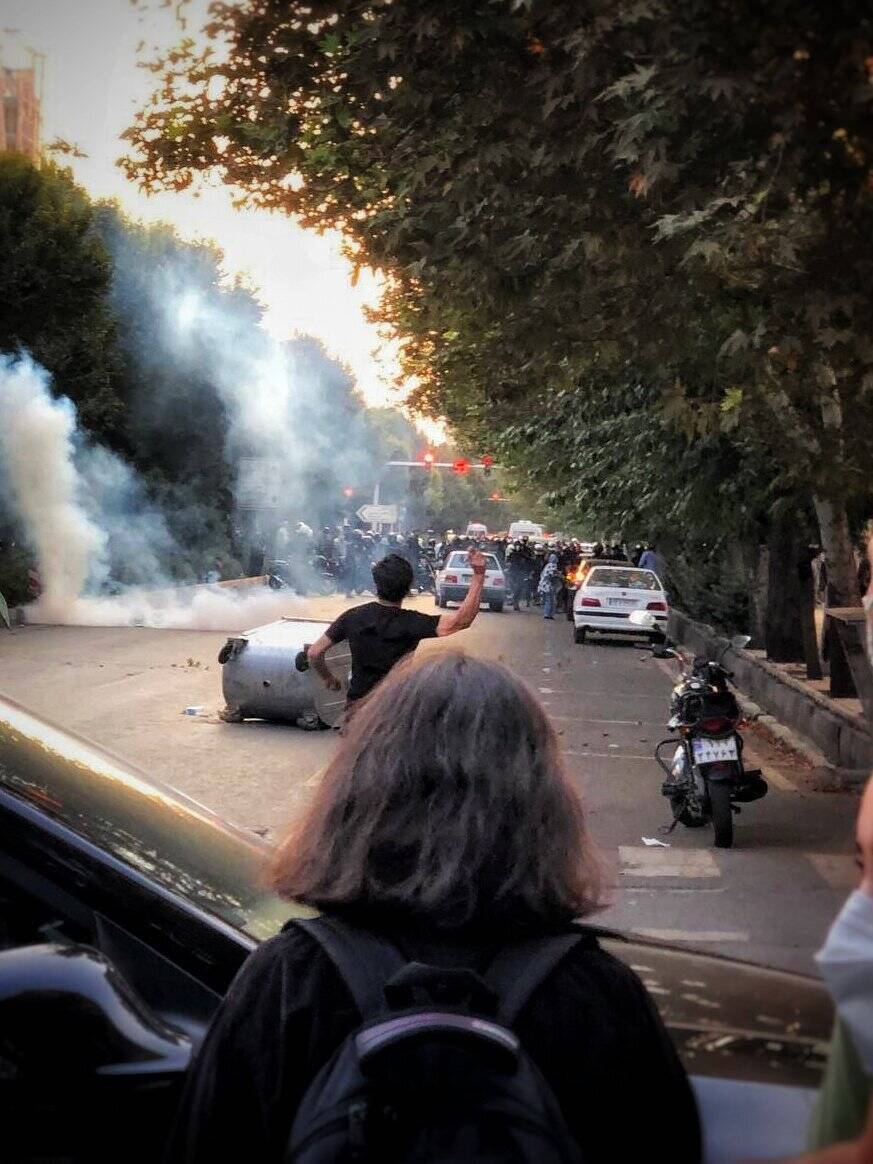
Simin, 20: I Have Not Walked on the Street in Years
Since they killed Mahsa, tears summarize my daily life. I have not previously had to deal with the morality police, mostly because I have a car. Why can’t I enjoy my life by walking through the streets? Why should I be scared all the time? Why are the fundamental rights not given to us? You might not believe it but I have not walked on the street in years, only taxis and my car just to avoid facing them.
I can’t go to the protests, but my friends do. I am the only girl in the family who didn’t immigrate to other countries. Every hour, each member of my family calls to see if I’m inside or outside. They stress about me. I feel scared too and I don’t know what I should do. I won’t leave because this is my country. I run an online store but I cannot even access my social media to check how my shop is doing. All access is blocked by the government. How do I see my future?
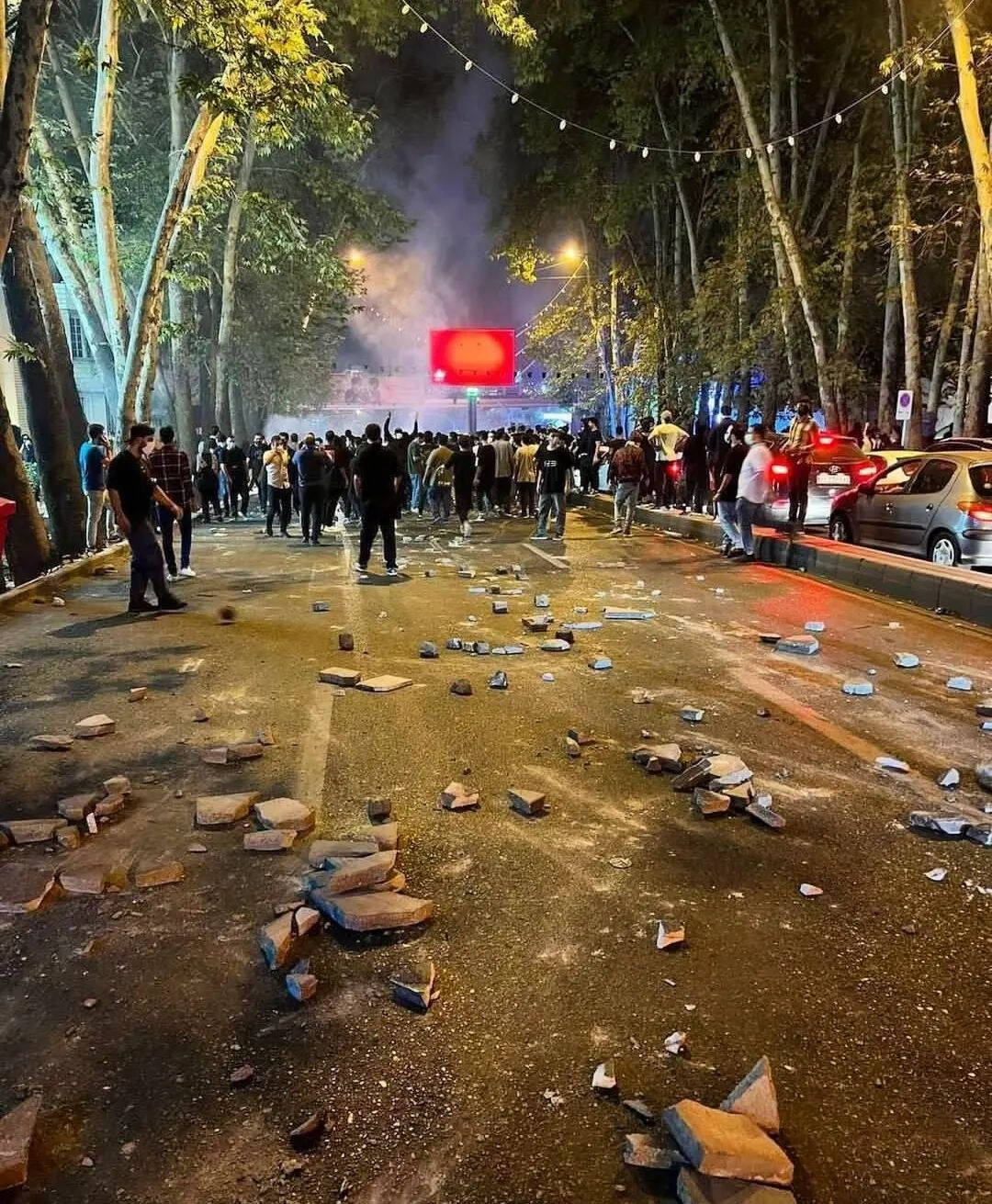
Rana, 29: They Were Only Released Because She Had to Go to the Hospital
My first experience with the morality police was in 2006, the year they were launched in Tehran. At the time, I was only 13 years old. They detained me in Sadeghieh Square and I was unaware of what this would mean or what would happen next.
I had a friend with me. I was asked to follow a policeman but I didn’t know what he wanted. I refused to get in their van and they yanked me to the ground and aggressively threw me inside. I remember two other girls who were sisters. One of them was thrown, and her head hit the roof of the car and fell on the ground. They were only released because she had to go to the hospital. This played in my mind like a movie when Mahsa died. That girl could have been Mahsa.
We had to sit on top of each other in the car because there was not enough space, which made breathing difficult. When we arrived, they kept us in a temporary lockup in the police station, something like an underground cellar. It was crowded, and you could see women of every age, including older women and early adolescent girls like me. The process was photographing us like prisoners, calling our families, submitting paperwork, changing clothes, and leaving. Just because I didn’t want to accept what they wanted at the beginning, made me the last person. I arrived at about 3 PM and left with my family at midnight.
That day was horrible. My family was terrified when I called, because my grandma was in the hospital, and they couldn’t take care of me. My mother came to support me. She arrived straight from the hospital and was unable to bring new clothing. They told her even her hijab was not appropriate, saying things like, “You’ll stay with your daughter in that jail if you raise your voice to defend her.”
After that, I made multiple attempts to avoid getting arrested, but it still happened frequently. I was in the same Vozara Center as Mahsa Amini. Based on what I observed, the majority beat you while using derogatory language.
I had another strange interaction with them as a police woman stopped me when I was in a taxi. She asked me why I had my head shaved – I asked if this was a problem for them. “Why don’t you have hair?” she kept asking. The odd thing was, it is usually showing hair that is a problem. The taxi began to drive away as the woman yelled that she had written down his license plate number, but he ignored it.
The morality police has been rising and falling throughout the years, but they have lately become more aggressive, concentrating on the pressure on women.
But, Women have undergone significant transformation between the time I was detained and now. They are not adopting the hijab as the government wants. My friends and I make every effort to avoid wearing it. Even my mother doesn’t cover up. This is how we call for freedom. I’m pleased that I can continue to oppose this. Since they killed Mahsa, I attend the protests every single day. I don’t know what will happen, but I’m happy to fight for my freedom whether we succeed or fail.
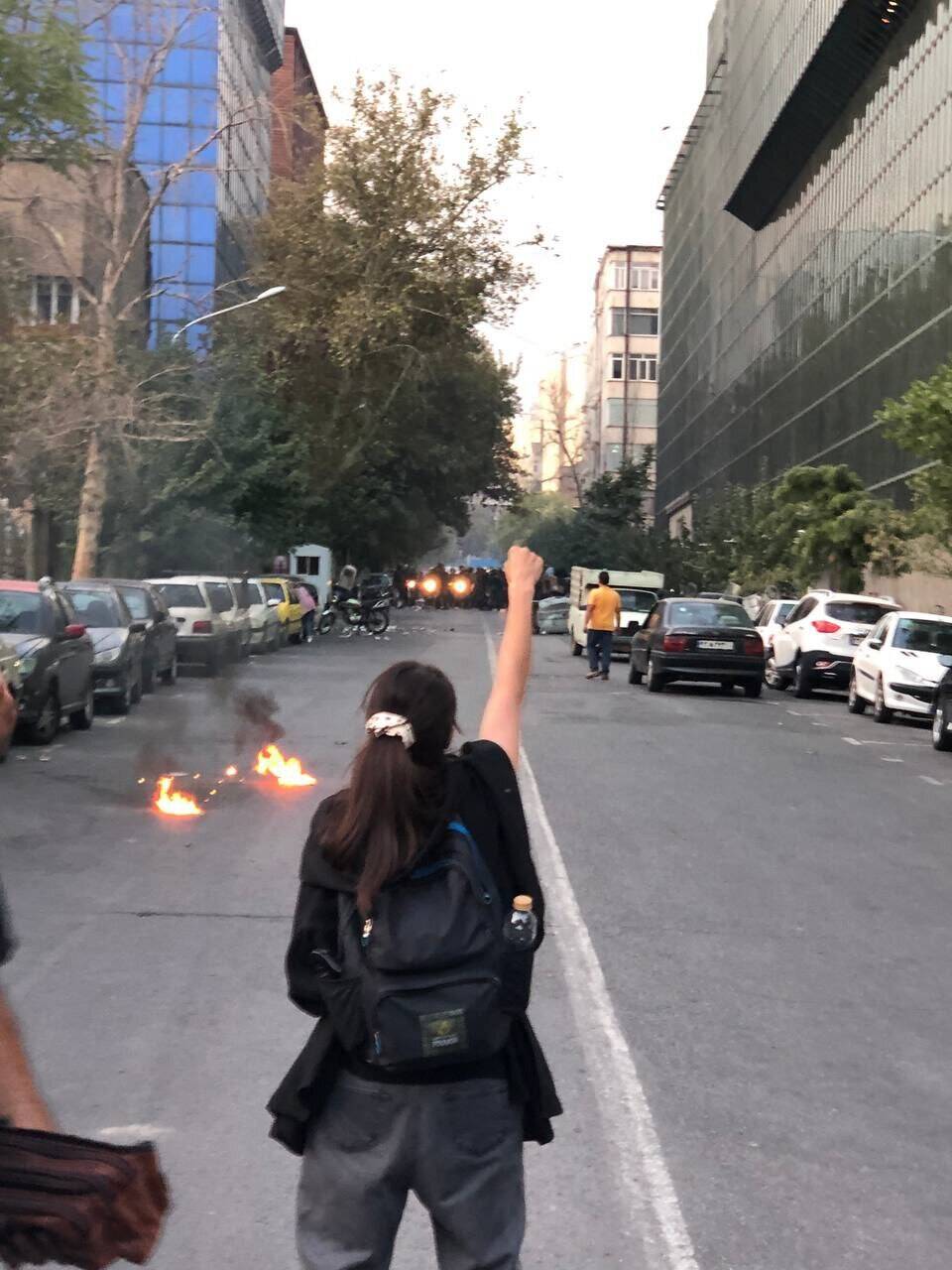
Maryam, 38: I Experienced Daily Horror in My Home Country
Despite the fact that I have always felt their shadow on my life, I have two clear memories from them. One is about a day when I was going to the hospital; I needed to arrive on time because I was carrying some important documents. I will never forget how stressed and panicked I was. What if in this important moment they arrest me? I was not detained that day, but the fear never left me.
Another time was when I was arrested for covering a demonstration for women’s rights in Iran. I was arrested and it ended up in court. I will never forget my court days. Me and my lawyer, both of us were young women and had to stand because they didn’t give us any chairs. My lawyer gave them my writing materials, magazines, and newspapers to prove that I am a journalist and can cover any event, including that demonstration. When they started to look, suddenly the judge shook his head and said: “what is this you have written? Aren’t you ashamed”? In one of the magazines, I wrote an article that was critical of the morality police. He became enraged and began to yell at me, questioning why I had written those words. They all started to humiliate me with my lawyer arguing back.
I never forgot that day, the magazine that we loved named the “women magazine,” he called it “feminist nonesense,” in Persian, as though femenism was a crime in his mind. They banned it from publishing.
Those were the days following Benazir Bhutto’s murder. It felt like we were regularly being terrorized. Every day, the morality police look after us, blocking a magazine just because it was about women, etc. I left the country, but I am aware that in my country women should be prepared to face violence and death simply for being female, like Mahsa. I think to myself these days: “They experience the same feeling as I did, a daily routine of terrorization.”
*Names have been changed for the safety of the subjects.
